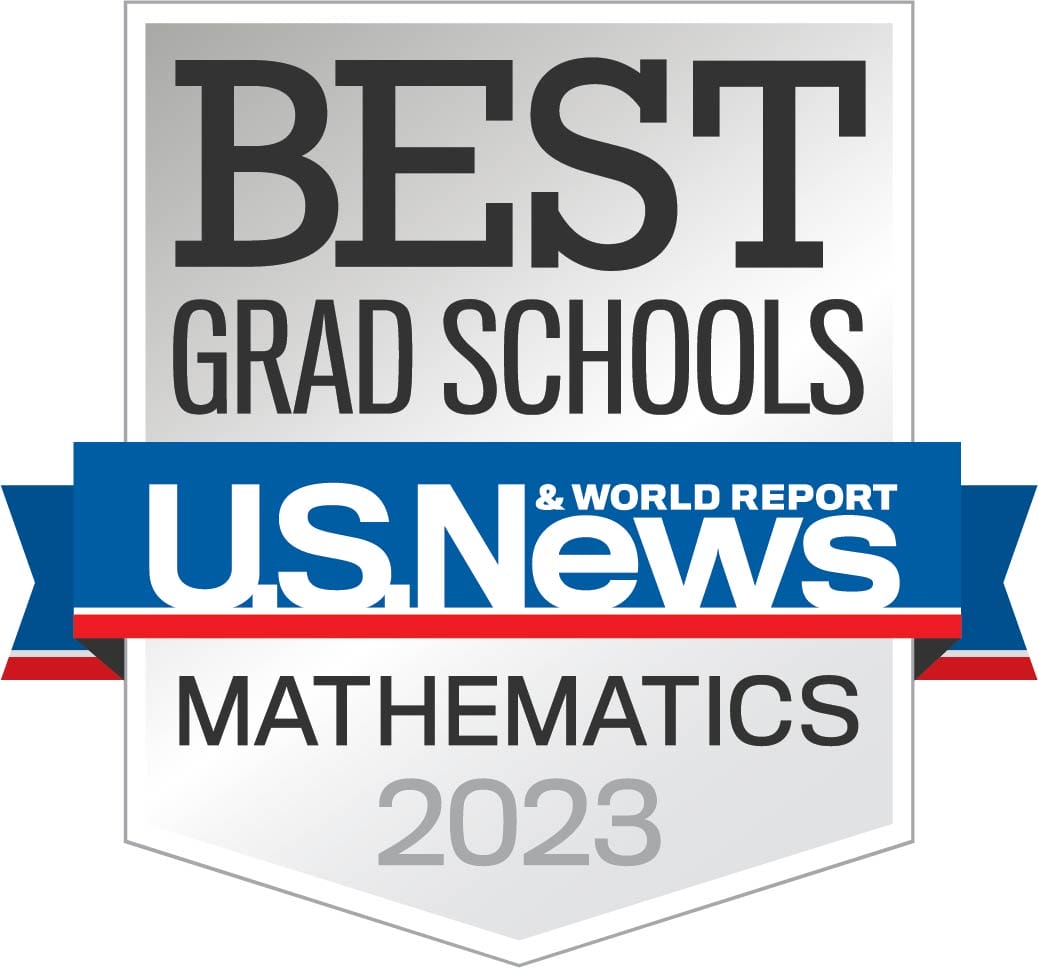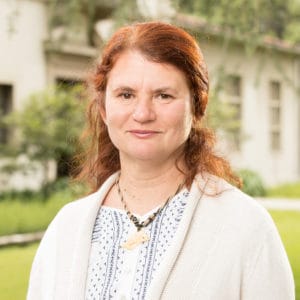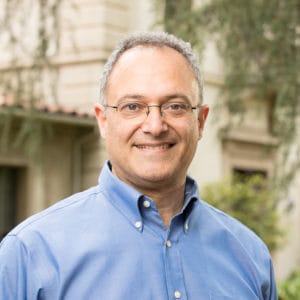Curriculum
The Financial Engineering Program provides a flexible curriculum. Thirty-two units are needed to complete the degree. Twenty-four units are required courses. Eight units are elective courses. Recommended electives are offered every year during the semester listed. Other electives are not offered during a fixed semester; they are listed at the end of this curriculum section.
Fall Semester
Required Courses
-
- Applied Probability and Statistics
- Corporate Finance
- Financial Time Series
- Stochastic Processes
Spring Semester
Required Courses
-
-
- Mathematical Finance: Fixed Income and Derivatives
- Quantitative Risk Management
Recommended Elective Courses
-
- Asset Management Practicum
- Machine Learning for Asset Pricing and Management
- Statistical Learning
Other Electives
The following courses may be offered in different semesters each year. Depending on their availability, they can be taken as electives:
- Quantum Computing and Applications
- Partial Differential Equations
- Math Clinic (two-semester sequence)
- Linear Statistical Models
- Discrete Mathematical Modeling
- Optimization
- Mathematics of Machine Learning
- Advanced Big Data Analysis
- Computational Statistics
- Financial Strategy & Valuation (Drucker)
- Selected Topics in Finance: Fixed Income (Drucker)
- Investments (Claremont McKenna College)
Accelerated Degree Option
Undergraduate students at the Claremont Colleges (Pomona, Scripps, Claremont McKenna, Harvey Mudd, Pitzer) can obtain a graduate degree on an accelerated track through the Claremont Graduate Scholars Program, working toward the master’s requirements simultaneously with the completion of an undergraduate degree. Up to 16 units of transferable credit can be earned upon admission to one of our master’s degree programs. Students are eligible for a minimum fellowship award of $6,500 per semester at CGU, based on 12 units of enrollment. Apply Here
Recent alumni of the Claremont Colleges (Pomona, Scripps, Claremont McKenna, Harvey Mudd, Pitzer) can obtain a graduate degree on an accelerated track through the Claremont Graduate Scholars Program. For alumni who have graduated within the past five years, up to 12 units of transferable credit can be earned upon admission to one of our master’s degree programs. See program-specific details for restrictions on applicable coursework. Students are eligible for a minimum fellowship award of $6,500 per semester at CGU, based on 12 units of enrollment. Apply Here
Application Guidelines
Requirements Summary
| Item |
Description |
| Application Fee |
$80 |
| Official Transcripts |
Yes |
| Letters of Recommendation |
2 |
| Statement of Purpose |
Yes |
| Resume |
Yes |
| Standardized Test Scores |
GRE recommended |
| Other Requirements |
Math verification form |
Please see the application checklist for more details.
CGU operates on a priority deadline cycle. Applicants are strongly encouraged to submit complete applications by the priority dates in order to assure maximum consideration for both admission and fellowships.
Once the priority deadlines have passed, the University will continue to review applications for qualified candidates on a competitive, space-available basis. The final deadlines listed are the last date the University can accept an application in order to allow sufficient time to complete the admissions, financial aid, and other enrollment processes.
Spring 2024
Priority Deadline – November 1, 2023
Final Deadline (International) – November 15, 2023
Final Deadline (Domestic) – December 1, 2023
Classes begin – January 16, 2024
Fall 2024
Priority Deadline – February 1, 2024
Final Deadline (International) – July 5, 2024
Final Deadline (Domestic) – August 1, 2024
Classes begin – August 26, 2024
Application Checklist
The Claremont Graduate University online application is hosted online by Slate Technolutions via a secure web server. You will create a username and password so that you can return to continue your application over several sessions and check your status after submission. After you submit your application, it is made available for review by our faculty and staff.
Begin your application
The application fee is non-refundable.
Applicants must submit a sealed, official transcript from every undergraduate and graduate institution that has granted the applicant a degree. Electronic transcripts sent to admissions@cgu.edu are also accepted. For undergraduate coursework, applicants are required to submit proof of a completed bachelor’s degree from a regionally accredited college or university. Unofficial copies of transcripts are accepted for review purposes, but official copies will be required upon admission.
Applicants currently earning a degree that will be completed prior to attending CGU are required to submit a transcript showing work in progress for evaluation purposes. Once the degree has been granted, a final official transcript documenting the degree conferred must be submitted to CGU.
International applicants are advised to review the International Transcript Guidelines for additional information on submitting international transcripts.
Applicants must submit an up-to-date copy of their resume.
A valid score on one of the following examinations TOEFL, IELTS, Pearson PTE scores is required of all non-native English-speaking applicants. The examination is not required for the following applicants:
- Citizens or permanent residents of countries where English is the sole official language of instruction, e.g., Australia, Bahamas, Barbados, Canada (except Quebec), England, Ghana, Ireland, Jamaica, Kenya, New Zealand, Nigeria, Scotland, St. Vincent and the Grenadines, Trinidad, Tobago, Uganda, and Wales (see the CGU Bulletin for a complete list of accepted countries).
- Applicants who hold an undergraduate or advanced degree, or will have earned such a degree prior to enrolling at CGU, from an institution in the US or in countries where English is the sole official language of instruction (see above).
- Applicants who have successfully completed an academic English pre-master’s or intensive graduate bridge program from a nationally recognized, regionally accredited four-year college or university in the United States in the last two years, with submitted evidence of successful completion, and subject to curriculum approval.
CGU’s school code for the TOEFL exam is 4053.
International applicants are encouraged to visit our International Applicants page for more information, including score requirements.
When filling out the online application, please enter references acquainted with your potential for success who will submit a written recommendation on your behalf. In most academic departments, references from faculty members who can speak to your academic ability are preferred; applicants with substantial work experience may request professional references. Please do not enter family members as references.
You will be required to input information for your recommenders (whether they are submitting online or not) in the “Recommendations” section of the online application. Please follow the directions in this section carefully before clicking on “Recommendation Provider List” to input the names and contact information for each recommender. You will have an opportunity to indicate if the reference writer will be submitting online. These reference writers will receive an email from CGU with instructions on submitting an online recommendation.
Recommenders who are indicated as offline will not receive an email from CGU with instructions to submit. These reference writers can submit via traditional mail and should use the supplemental New Student Recommendation Form. Recommenders can also email their letter of recommendation to the Office of Admissions at admissions@cgu.edu.
Download the Recommendation Form
Please submit a 2-3 page statement of purpose that details your academic and/or professional achievements, your specific areas of research interest within your desired field of study, why you are a strong candidate for graduate studies at CGU, and your career goals.
GMAT or GRE examination scores must be dated within the past five years. Request that an official GMAT or GRE score be sent to admissions directly from Educational Testing Service (ETS).
Scores must be sent directly to CGU by the testing agency.
CGU’s school codes:
GMAT DZK-QS-08
ETS (GRE and TOEFL) 4053











